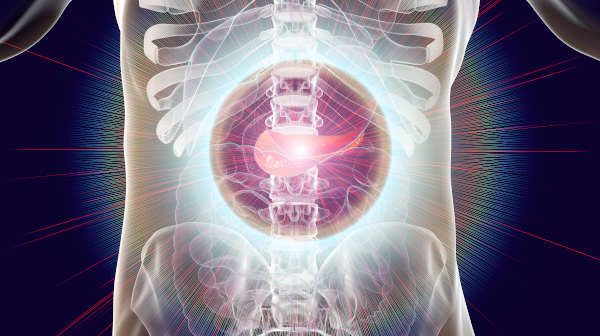Your pancreas is a small gland that plays a big role in your body, making insulin to control blood sugar and helping to digest food.
When your pancreas isn’t working right, you usually can’t help but take notice. Unfortunately, one of the most serious diseases involving the pancreas is also the sneakiest, and you might not notice it until it is too late.
Pancreatic cancer is one of the deadliest forms of cancer, largely because it can grow for some time before it is noticed. Early detection is key to fighting this cancer, so take time to understand the symptoms, risk factors, treatment and prognosis.
Symptoms
Pancreatic cancer often exhibits symptoms in the head of the gland earlier than in the body or tail. Symptoms include jaundice, abdominal and back pain, bloating, nausea and vomiting. In later stages, it can also cause weight loss and higher blood sugar levels.
“Symptoms of pancreatic cancer often do not become apparent until the disease is already in its later stages,” says Sarah Hilton, a registered nurse. “Recognizing these symptoms can help you get treatment as soon as possible and improve your chances of beating this cancer.”
Risk factors
Though a cause for the disease has not been identified, there are some risk factors that may increase your chance of getting pancreatic cancer. For example, having a family member who was diagnosed with pancreatic cancer raises a person’s risk. So does smoking, being obese, and eating a diet with a lot of fat and meat. People who have had pancreatic cysts and chronic pancreatitis also have an elevated risk.
Treatment
Depending on the cancer’s stage when a person is diagnosed, there are several treatment options. Surgery may be performed to remove the cancer. Surgical options often remove parts of other organs, including portions of the stomach and small intestine. Radiation, chemotherapy and other medications may also be used to attack the disease. Some treatments may also be necessary to provide adequate nutrition if the pancreas is removed. If the cancer cannot be removed, treatment options may focus on quality of life and pain relief.
Prognosis
On average, people who have been diagnosed with pancreatic cancer survive for two to three years. The survival rate at five years is only 7%. Although these numbers are grim, they improve for patients whose cancer is detected at early stages. If the cancer is caught before it spreads, doctors may be able to remove it surgically. Patients who have the cancer completely removed have a 20- to 35-percent five-year survival rate.
Pancreatic cancer can be a painful, deadly disease. While it may not be possible to prevent this cancer, eating well, exercising and avoiding unhealthy habits like smoking and drinking too much alcohol can give you a better chance of avoiding it.
A version of this article was published by The Daily Herald. It has been republished here with permission.




